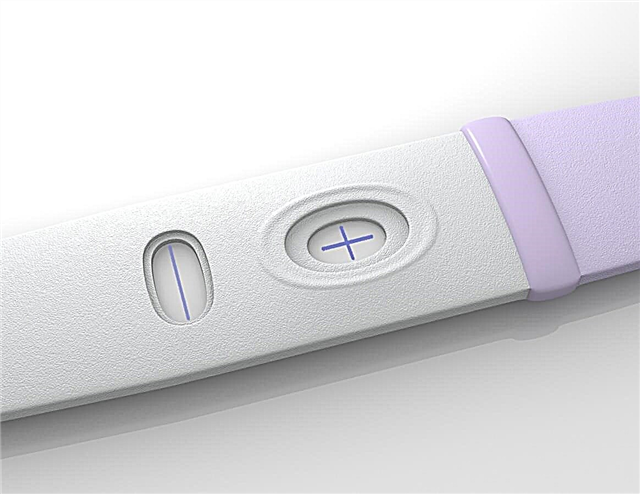
At the 41st week of pregnancy, women become especially sensitive and attentive to their well-being, because childbirth, according to doctors' estimates, should have already happened.
The estimated date of birth has passed, and the baby is in no hurry to be born. We will tell you about what abdominal pain and discharge can tell at this time in this article.

Physiological features
It became very difficult for a woman to carry a large and heavy belly. During 9 months of pregnancy, the uterus has increased almost 500 times. Now it occupies almost the entire abdominal cavity, displacing and squeezing the internal organs - the stomach, gallbladder, liver, bladder and intestinal loops. This cannot but cause certain pains.
The baby this week is usually pressed with the head against the exit of the small pelvis. He is ready for birth and weighs an average of over 3.5 kilograms. The load on all organs and systems is great, the woman feels tired, she wants to give birth quickly and feel lightness again.
Abdominal pain at this time is almost always a variant of the norm, the so-called "harbingers" of childbirth. But there are also exceptions.

Why does my stomach hurt?
The considerably enlarged uterus shifts the center of gravity, which causes various pains in the lower back, back, and sacrum. The stomach hurts due to overstrain of the ligaments and muscles of the peritoneum. But such pain is usually not permanent and long-lasting, intensifying only with a change in body position or movements.

The most common causes of abdominal pain are as follows.
Contractions - real and training
The stomach may hurt from contractions. They are real, testifying to the beginning of labor, and false (training).
With false contractions, which in primiparas usually appear in advance, and in multiparous ones - shortly before childbirth, the pain is pulling in nature. Women say that it can be compared to how the lower back and lower abdomen pulls during menstruation. The abdomen tenses, "stiffens", becomes rigid, then the contraction recedes.
Training fights differ from genuine fights by the complete absence of cyclicality, periodicity and reinforcement. If a woman, when false contractions appear, lies down and rests a little, then the pain goes away. With true fights at this time, this simple advice will not take effect. Contractions will increase in time and strength of pain, regardless of the position of the body of the expectant mother in space.
You should go to the hospital if the contractions are repeated every 5-7 minutes.

Digestive problems
Abdominal pain at 41 weeks can also cause indigestion, increased gas production in the intestines. As already mentioned, the organs of the digestive tract squeezed by the uterus cannot work normally, and diarrhea, constipation, gas and nausea are completely normal for the last weeks of pregnancy. The pain in this case will be in the nature of tingling, cramps, there may be a feeling that "the stomach is twisting."
The occurrence of such pain is a reason to revise the diet, exclude dairy products, excess meat from it, add vegetables and fruits rich in fiber.

Discharge is the norm
Normally, the discharge at this time becomes slightly more abundant than before, but it should still be light, white or yellowish, devoid of an unpleasant odor. A woman should wear panty liners in order to quickly monitor possible changes in discharge.

Water discharge
If the waters have completely departed, then this does not cause questions. A large amount of warm, odorless waters should not be confused with urinary incontinence or other symptoms.
Questions are usually caused by leakage of amniotic fluid. It is manifested by the appearance of watery discharge, devoid of color and odor. Their number is usually small. Leakage can increase with movement, during a change in body position.
A pharmacy amniotest and a gynecologist will help to distinguish water from urine, which late pregnant women often “miss” because of the pressure of the baby's head on the bladder.

Mucous plug
Mucous discharge with clots may indicate that the mucous plug has begun to drain, which closed the entrance to the cervical canal and protected the fetus from infection during pregnancy.
Now the neck expands, softens, smoothes, and the cork can no longer take the same place. It can leave in parts within a few days, or it can leave at a time in the form of a clot of mucus with brownish or bloody streaks, interspersed.

Discharge after examination by a gynecologist
The brown and light brown discharge that appears after examining the cervix by a gynecologist shouldn't surprise a woman this week. Manual inspection can cause the plug to come off if it hasn't already. Then there will be only a few days or hours before giving birth.
Discharge after visiting a doctor can also be short-term. This happens when a loose and softened mucous membrane is injured and does not "signal" the onset of labor.

Pathological discharge
All of the above reasons are completely physiological and normal. However, at 41 weeks, unusual discharge may appear, which are symptoms of pregnancy complications. Bloody discharge, dark pink, orange can indicate problems with the cervix or the beginning of placental abruption. When blood appears from the genital tract, a woman should immediately call an ambulance.
Spotting discharge of green, brown, gray with an unpleasant odor may indicate the presence of infection in the genital tract.
Thick white discharge with a sour or yeast odor is a sign of thrush. It often begins in the later stages due to changes in the hormonal background. Infections and thrush are accompanied by itching and discomfort in the external genital area.

If time permits, you should have time to treat them before childbirth, to reorganize the genital tract. If a woman with such secretions enters the hospital, she will be assigned to the observational (infectious) department.
Natural childbirth with infections of the genital tract is a certain danger for the baby - he is most likely to become infected during his birth.
For a video on how to determine the onset of labor and distinguish contractions, see below.



